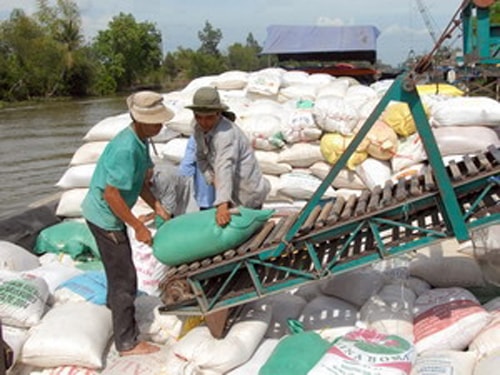Massive informal export seriously affects the quality of Vietnamese rice
According to the forecast of the Vietnam Food Association (VFA), Vietnam's official rice exports this year will only reach about 6.7 million tons, down 1 million tons compared to the whole of 2012. On the contrary, the amount of rice exported through unofficial channels, mainly to China, has increased sharply, forecast to reach up to 1.5 million tons.
 |
| Illustration photo |
Every year, China imports an average of over 3 million tons of rice, including three types: long, medium and short grain, of which 50% is long grain from Vietnam. By mid-2013, Vietnam's export quota to China had almost been fulfilled. However, due to the huge demand of this market, businesses are forced to import through unofficial channels. Currently, there are about 30 businesses participating in unofficial exports.
Mr. Do Ha Nam, General Director of Intimex Company, said: “In terms of goods, exporting will help farmers consume rice, reducing the stress of inventory. However, in terms of management, exporting goods in the form of small-scale trade will not grasp the actual quantity of goods. And when the tax system is not managed, it will be disadvantageous for the State.”
In addition, the VFA representative commented that the current easy sale of rice through unofficial channels will negatively affect the building of the Vietnamese rice brand. According to the VFA Chairman, recently in a meeting with the Shenzhen Rice Association - China, Chinese enterprises have begun to warn about the declining quality of Vietnamese rice.
Mr. Truong Thanh Phong, Chairman of the Vietnam Food Association, said: “People often do not care about the quality of rice as well as the color and moisture when exporting across the border. Farmers also do not need to care about changes in quality. Being dependent on the Chinese market will cause difficulties for domestic rice when China stops purchasing.”
Faced with this reality, Mr. Phong recommended that in order to control the quality and quantity of exported rice, all exporting enterprises through secondary border gates must register and be licensed by the locality.
Recently, the Ministry of Industry and Trade also said that enterprises exporting through secondary border gates must register with the Ministry of Industry and Trade and be licensed by the locality. The Ministry of Industry and Trade will direct relevant agencies to control informal exports, not allowing this smuggling situation to affect official exports.
According to VTV News






